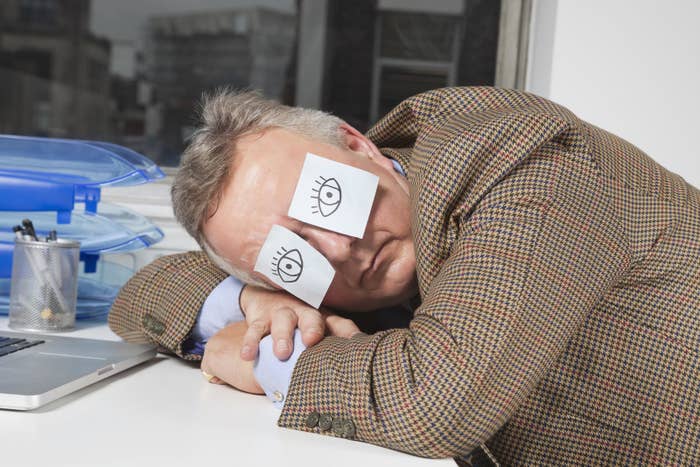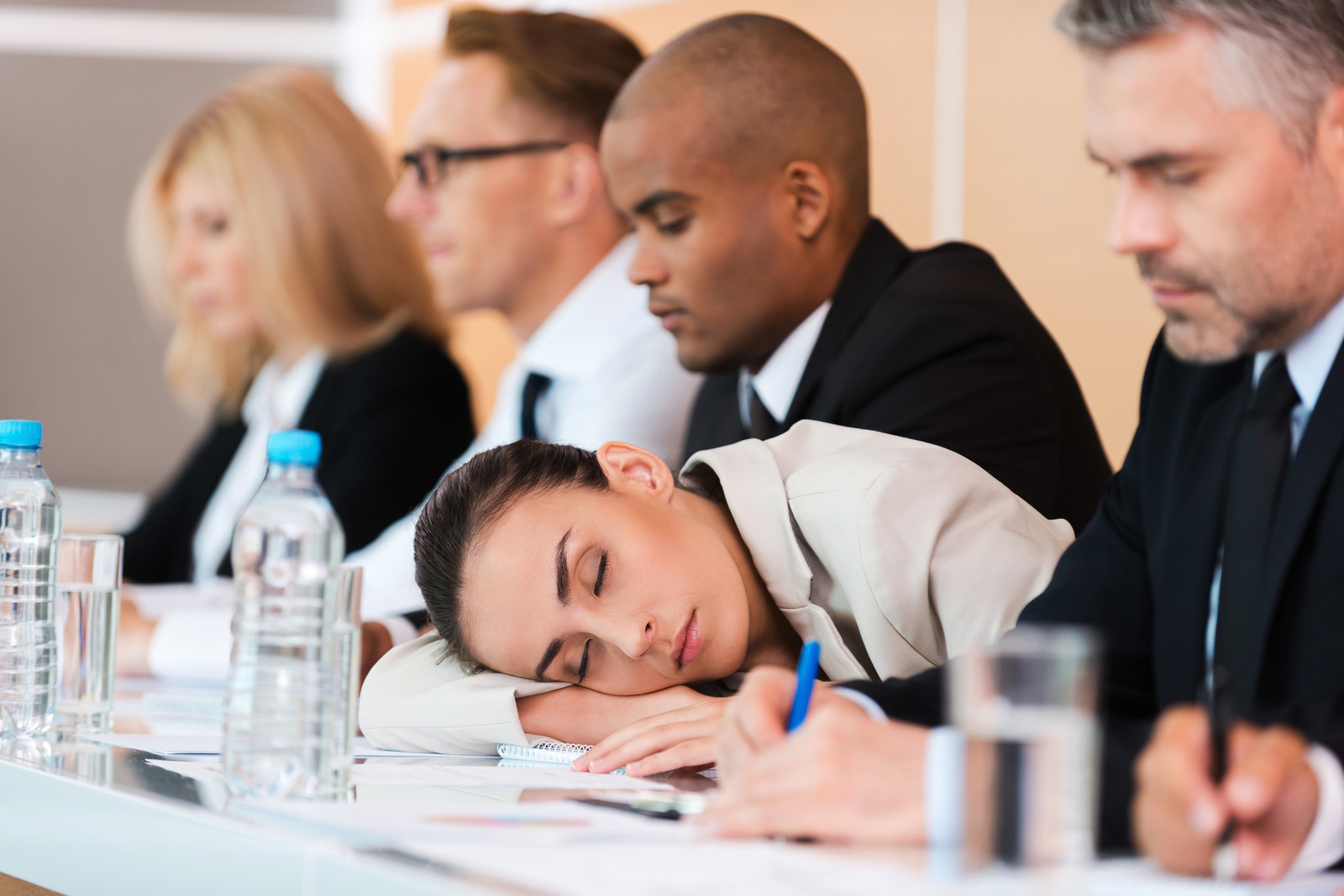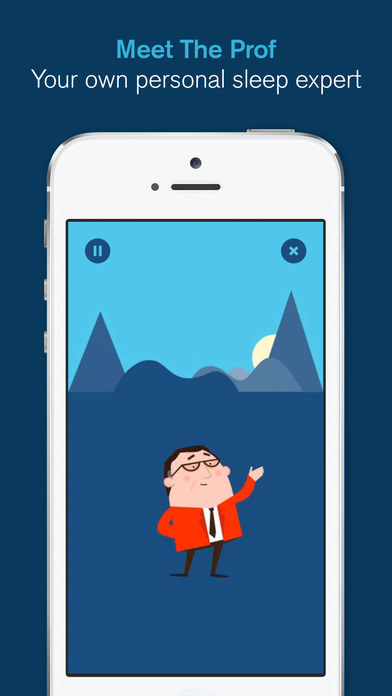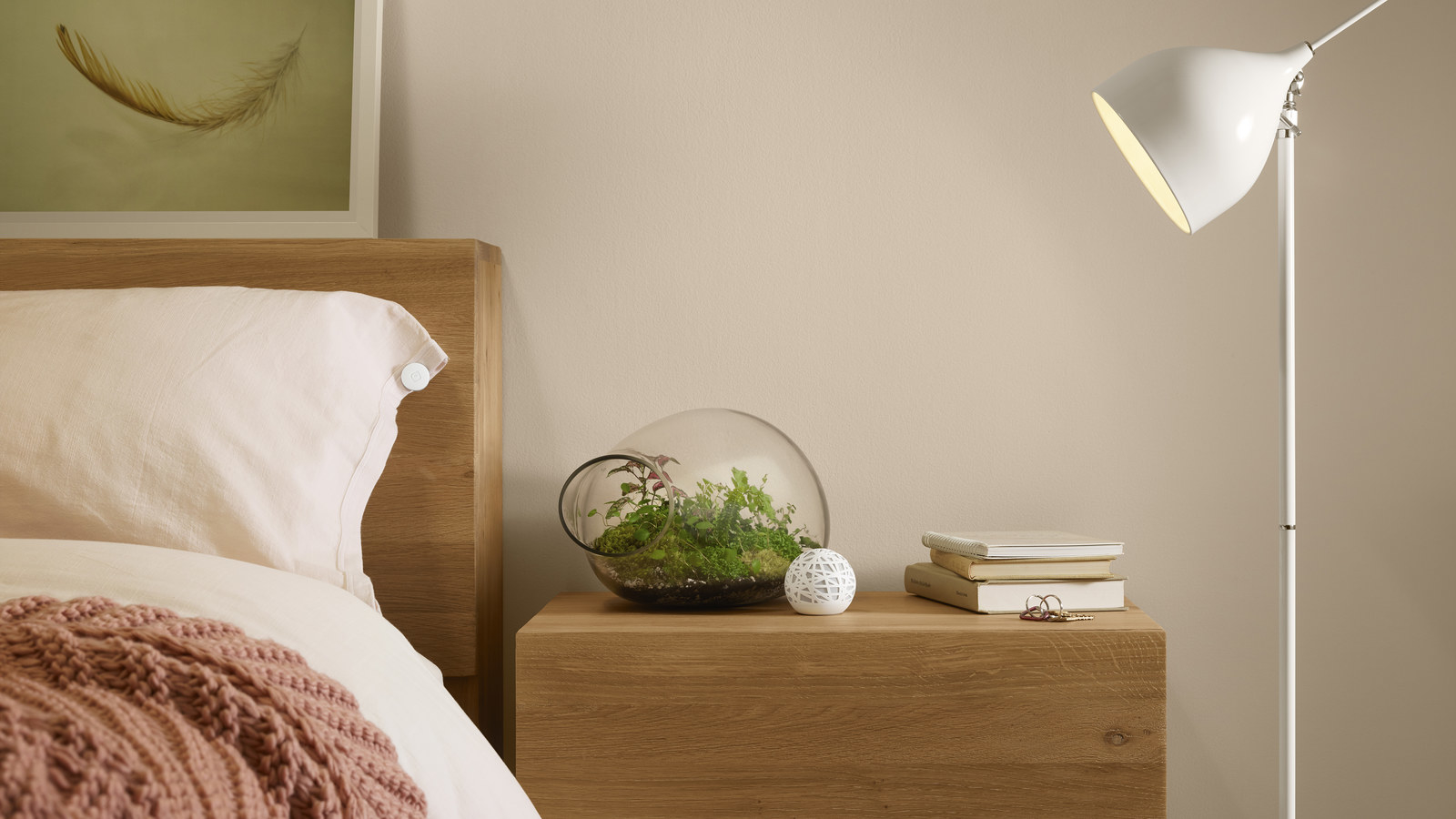
Dan Roberts has been tired for what feels like his whole life. Between depression and anxiety, a packed work schedule, irregular eating habits, and a mind that’s prone to racing when it should be drifting off, the 36-year-old is lucky to get more than four hours of shut-eye virtually every weeknight.
So during the day, “every minute feels like an hour,” Roberts told BuzzFeed News. “You feel really sluggish and down, maybe not quite lucid and not quite yourself.” Desperate, he started taking Benadryl. “Before you know it, one becomes two and two becomes three.”
In the fall of 2015, he got reprieve in the form of Sleepio, a research-backed online sleep therapy and coaching platform from the company Big Health. While there’s no shortage of sleep-tracking apps, Sleepio is targeting sleepy workers in particular. Employers like Boston Medical Center — where Roberts is a physical therapy assistant — have started offering it to their workers as a health benefit, much like they might provide gym discounts or medical screenings or on-site fitness classes. In corporate wellness, the next frontier may be your zzz's.
Employers generally support wellness programs because, the thinking goes, workers who are healthy and active tend to be more productive, miss less work, and incur lower health care costs. Some of these programs track data about their lifestyle and behavior, like weight, smoking habits, and steps.
“Are we setting a precedent for the employer to be present, albeit in virtual form, in the worker’s home?”
But not sleep, at least until recently. Big Health, founded in 2010, deploys Sleepio to 1 million workers at 20 employers, including Boston Medical Center, LinkedIn, Oxford University, the Henry Ford Health System, the UK’s National Health Service, and Comcast. Aetna offers hundreds of dollars to employees as an incentive to sleep seven hours a night. And Accenture, the strategy and consulting firm, is now providing Sense devices, the sleep-monitoring gadget from the startup Hello, to its employees (it isn't privy to any of their data, and participation is voluntary).
In general, though, not every employee may be open to having their sleep tracked by a program associated with their bosses. Sleep is intimate. You can be sleep-deprived from partying until sunrise, which you may not want anyone linked with work to know. Or maybe you’re working into the early hours of the morning, in which case a sleep-tracking work wellness program may feel a little ironic.
For its part, Sleepio says it does not share personally identifiable data with employers, although it does share aggregated, de-identified data about employees on the whole. Aetna doesn’t ask employees to confirm information they provide for the voluntary program, a spokesperson said.
Still, the idea of any employer monitoring its workers’ sleep creeps out Ifeoma Ajunwa, a law professor who studies wellness program–related legal issues at the University of the District of Columbia. “What level of privacy invasions are we willing to accept in the context of employment?” she asked. “Are we setting a precedent for the employer to be present, albeit in virtual form, in the worker’s home?”
But Dr. Lawrence Epstein, assistant medical director of the Division of Sleep and Circadian Disorders at Brigham and Women’s Hospital in Boston, thinks sleep is as valid a health metric to worry about as any other. “We think it’s okay to promote people not smoking cigarettes and not using drugs and alcohol to excess and not being overweight,” he said. Sleep “should be in the same category.”

It’s not surprising that employers would be invested in making sure their workers snooze well (off the clock, that is). More than one-quarter of people in the US occasionally don’t get enough sleep, and nearly 10% have chronic insomnia, according to the Centers for Disease Control and Prevention. Not only does insufficient sleep lead to car crashes, machinery accidents, and on-the-job errors, it’s linked with chronic conditions like diabetes, cardiovascular disease, obesity, and depression. Lost time due to sleep deprivation adds up to about 1.23 million missed working days, or $411 billion, a year in the US, according to a report by the Rand Corporation. Close behind is Japan, where lack of sleep leads to 604,000 missed working days per year.
Roberts knew he had to try Sleepio when he filled out an initial questionnaire about his sleep. “It turned out I was the worst-scoring person in the whole building,” he said.
Every day, he’d fill out a Sleepio diary, listing things like what time he wanted to go to bed and what time he’d actually done so. An animated professor in the app offered feedback and taught him to, for example, write down how he was feeling, do muscle-relaxation exercises, and identify what was making his mind race. “It would take you step by step — ‘Is this something that needs to be done now, can it wait until later?’” he said.

Roberts was used to forcing himself to lie down for eight or nine miserable hours, although he’d actually only sleep for four or so. But Sleepio suggested that he go to bed only when he was truly tired, so his body would associate that time exclusively with deep, quality sleep. As the weeks ticked by, Roberts gradually improved his sleep in terms of both time— to six hours and 45 minutes — and quality.
Sleepio is designed to deliver what’s known as cognitive behavioral therapy for insomnia. It’s a line of research pioneered by Colin Espie, a sleep medicine professor at the University of Oxford and co-founder of Big Health and Sleepio, where he is now the clinical and scientific director. One of Espie’s studies, for example, tested an early version of Sleepio on adults with insomnia. Eight weeks after the treatment, those who took the online course spent 20% more time in bed asleep, compared to 6% who took a placebo program.
“We formalize all of that knowledge of a world-leading expert, and make it available to everybody by automating it,” Big Health CEO Peter Hames told BuzzFeed News.
Even if employees are open to the idea, accurately tracking sleep and seeing if a sleep therapy is working isn’t straightforward. The scientifically valid way of having your sleep measured involves spending the night in a lab and hooked up to expensive equipment — not exactly normal bedtime circumstances. By contrast, in wellness programs that reward you for your walking activity, Fitbits and pedometers are pretty reliable step-trackers.
One way Sleepio tracks its users is by syncing with sleep-tracking bracelets like Jawbone and Fitbit, but some studies have questioned those devices’ accuracy. Otherwise the startup relies on people to self-report when they go to bed and wake up. So does Aetna, whose employees can earn $25 for every 20 nights of sleeping seven hours or more for a maximum of $300 each year.

But other workers may find peaceful slumber to be a reward in and of itself.
In November, Target and Best Buy started selling Sense, a voice-activated, orb-shaped device that sits by your bed and monitors how conducive the room is to sleeping, from its temperature to noise level. And it wirelessly connects to a pillow sensor that tracks your movements. Its maker, Hello, says its gadget is now being used by workers at Accenture, a client of Arianna Huffington’s newly formed corporate wellness company, Thrive Global, in addition to other, unannounced workplaces. (Huffington is the author of The Sleep Revolution and a self-described “sleep evangelist.”)
“The more sleep-deprived an individual is, the more they’re willing to let other people work and coast on the good work of other people,” Matthew Walker, Hello’s chief scientist and director of UC Berkeley’s Sleep and Neuroimaging Laboratory, told BuzzFeed News. “I think finally business is waking up — if you excuse the pun — to the importance of sleep.”
